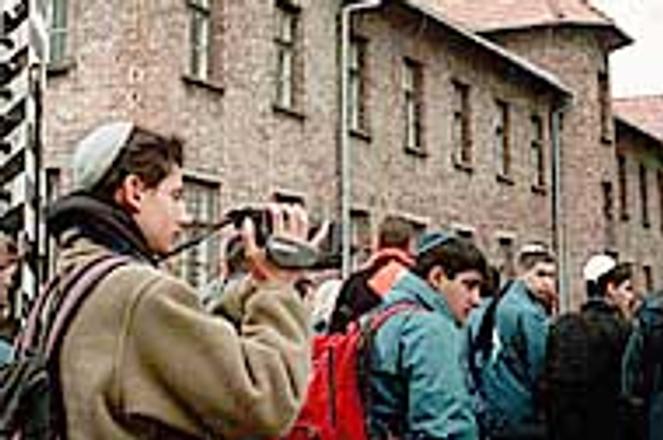MANY Slovak Roma died with Jews in Nazi concentration camps.photo: TASR
JOZEF Balogh, an internee of the Nazi Dachau concentration camp, on April 2 received the first half of a 15,000 German mark award from the 'Remembrance, Responsibility and Future' foundation, which was set up by the German cabinet in 2000.
Balogh is one of 4,060 Slovak citizens who are eligible under a German law from August 2000 for compensation for their suffering as forced labourers.
According to Daniela Stábová from the Bratislava-based International Organisation for Migration (IOM), which was responsible for co-ordinating and forwarding the applicants' requests to IOM headquarters in Geneva, Balogh is one of 49 Roma to have applied and been recognised as eligible for compensation.
Now 74, Balogh spent from autumn 1944 to May 1945 at Dachau. He says that several other Slovak Roma were taken with him to the camp, adding that "some died at the camp, others from various diseases after returning home".
The father of nine children and grandfather of "dozens" says he is happy about the money, but is not willing to discuss what he went through at the camp.
"We experienced terrible things. I don't feel like bringing it all back to mind," Balogh told the daily paper Pravda.
According to Daniela Malíková of the IOM in Bratislava, the remaining compensation claimants will receive the first payments on their awards by the end of 2003 at the latest.
"IOM headquarters in Geneva has received over 308,000 compensation requests, and it will naturally take some time before all claimants receive their money," Malíková said.
As Balogh collected his award, the Slovak Jewish community received a setback in its attempts to win compensation for wartime crimes committed by Nazis and their supporters.
On March 26, the German cabinet rejected the legitimacy of a body representing Slovak Jews in their case to recover money paid by the wartime Slovak state to cover 'deportation costs'. The cabinet said the Union of Slovak Jewish Communities (ÚZŽNO) was not eligible to represent the country's 3,500-strong Jewish population in the case.
The ÚZŽNO has been in court with Germany since March 2001, requesting payment of 140 million German marks in compensation for the money paid in 'deportation fees'.
The Slovak wartime state paid 500 German marks for each of the 58,000 to 70,000 Slovak Jews historians estimate were sent to death camps by the government of Jozef Tiso.
The ÚZŽNO claims that the Slovak state paid the fees from confiscated Jewish property.
Jozef Weiss, head of the Union, said that despite the German government standpoint, the ÚZŽNO had a legitimate claim to represent the Slovak Jewish community.
"Because past Slovak governments were not successful in reaching a bilateral agreement with Germany to recover the money, like happened for example in the Czech Republic, we decided to claim this money ourselves," he said.
The ÚZŽNO claims to be a legal representative of the Slovak Jewish community, in accordance with a 1945 law which established the Union. It is determined to continue in its compensation case.
"If we don't succeed in the German courts we may turn to the International Court for Human Rights in Strasbourg," Weiss said.
"We'll continue in our dispute with Germany, and we believe we'll be successful in the end," he added.


